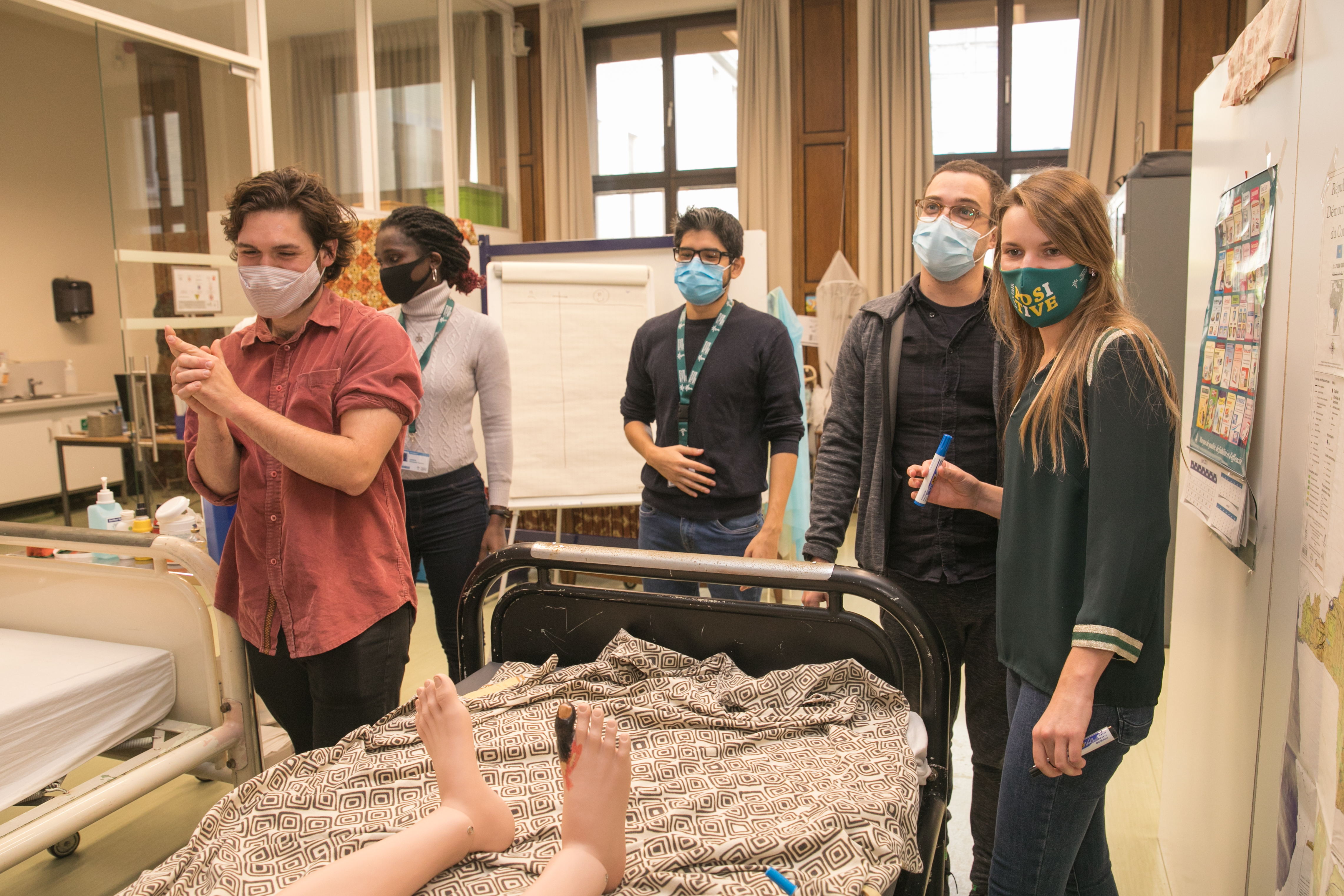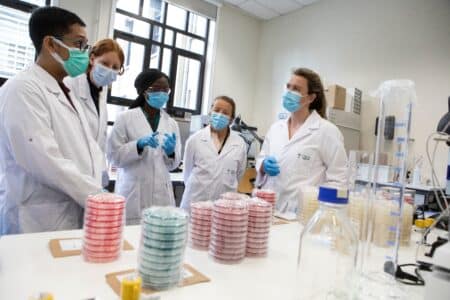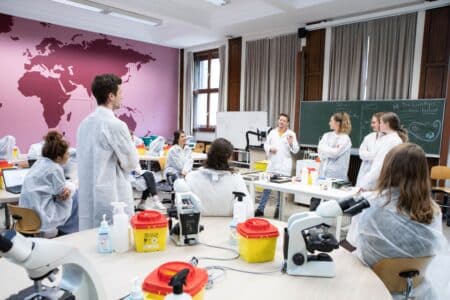International health stands on a precipice. One moment, the world is calm, and the next, an outbreak, like the Ebola virus and COVID-19, could be knocking on our doors. In these global events, having the knowledge, skills, and critical mindset to address these complex health challenges is key to any modern healthcare professional.
At the Institute of Tropical Medicine (ITM) in Antwerp, health workers such as nurses and midwives, health scientists, and clinicians can find a certification that enhances and enriches their expertise to improve global health outcomes.
Renowned worldwide for its expertise in tropical medicine and international public health, ITM offers three postgraduate trajectories into healthcare, research, or a combination of both. The tracks cover Introduction to Tropical Medicine, Tropical Medicine and Clinical Decision Making, and Research Approaches in International Health. Each course, when combined with the foundational Challenges in International Health (CIH) course, will yield a postgraduate certification upon completion. Credits can be used for a future master’s degree at ITM too.
As a building block that sets your foundation for the career-specific courses, CIH addresses global health challenges through case studies of various settings, emphasising improved crisis preparation and attention to tropical diseases. In this course, students analyse social, political, economic, and ecological determinants of health, developing context-specific interventions and communication strategies.
Understanding this topic supplements the other courses, allowing you to see the larger picture that shapes international health. With ITM’s comprehensive courses, students benefit from a multidisciplinary teaching team’s scientific mastery and field experience, tailoring their learning trajectory to personal interests and career goals.

An overview of how to navigate the PG certificates at ITM. Source: Institute of Tropical Medicine
Falke Cools, who began her career in midwifery and pursued a master’s degree in social and cultural anthropology, wanted a way to integrate both fields of study into one, something that she easily accomplished with the programme that combines the Introduction to Tropical Medicine and CIH course.
“Each course component dealt with a different angle, and each week, a new and interesting topic was highlighted, so I thoroughly enjoyed learning!” says Cools.
Learning across multiple disciplines is a common factor across all of ITM’s courses. By exploring health issues from a wide range of perspectives and fusing tropical medicine, public health, and social sciences, ITM prepares students to think swiftly and prepare for any eventuality.
Beyond that, the institution offers a hands-on approach. This includes simulating fieldwork scenarios in tropical and resource-limited settings, a great opportunity for students to face real-world challenges under the guidance of staff.
For Angela Willems, a general practitioner from Belgium, ITM’s programmes offered a more detailed insight into the world of international health.
“I didn’t anticipate how much I would enjoy the CIH part of the programme,” says Willems. “We covered topics like health in times of crisis and disease prevention and control — topics not typically addressed in traditional medical courses. The group work was particularly beneficial, allowing for deeper learning and reflection compared to standard theoretical classes.”

Source: Institute of Tropical Medicine
What further sets ITM apart is its diverse student body and teaching staff, recruited from varying cultural and professional backgrounds. As the institution focuses on a personalised and student-centred approach, with classes kept small, students and lecturers get to enjoy meaningful interactions, comparative analysis, and intellectual discussion. Ultimately, it sets the stage for better learning, mentorship, and networking opportunities.
“The interaction with my fellow classmates was wonderful. I gained valuable insights from everyone’s diverse backgrounds and contexts,” says Cools. “The varied assessment methods often allowed us to collaborate in diverse groups, which was personally and educationally enriching.”
Hence, it’s little wonder that ITM graduates leave the institution satisfied.
Graduates are prepared to immediately contribute to the field of international health alongside an alumni network with more than 5,000 national and international community members. Whether their careers take them to academia, research, government, or NGOs, they find themselves equipped with the skills necessary to navigate any challenges that come their way. By conducting impactful research on public international health, infectious diseases, neglected tropical diseases, and emerging pathogens, they bolster ITM’s already strong reputation and make their mark on the sector.
ITM’s location in Antwerp, Belgium, is another advantage for students and graduates. Its central European location welcomes the diverse student body that fills its halls while acting as the midpoint for students to experience all the neighbouring European cities, including opportunities for personal and professional development.
“Looking ahead, this postgraduate programme is making me think about shifting my career toward public health,” says Willems. “It has been a valuable and eye-opening experience.”
Register for ITM’s English postgraduate certificate programmes now. Applications close on July 15, 2024.
Follow ITM on Facebook, X, Instagram, and LinkedIn. To find out more about ITM and their work, listen to their podcast “Transmission”.












